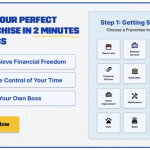Your support helps us to tell the story
From reproductive rights to climate change to Big Tech, The Independent is on the ground when the story is developing. Whether it’s investigating the financials of Elon Musk’s pro-Trump PAC or producing our latest documentary, ‘The A Word’, which shines a light on the American women fighting for reproductive rights, we know how important it is to parse out the facts from the messaging.
At such a critical moment in US history, we need reporters on the ground. Your donation allows us to keep sending journalists to speak to both sides of the story.
The Independent is trusted by Americans across the entire political spectrum. And unlike many other quality news outlets, we choose not to lock Americans out of our reporting and analysis with paywalls. We believe quality journalism should be available to everyone, paid for by those who can afford it.
Your support makes all the difference.
There has never been a better time to teach people how to date. Just ask anyone who’s single how things are going and listen to the diatribe that follows. It’s not just that people are feeling fatigued by dating apps. Or that they’ve already exhausted all their mutual friends. It’s not even that there’s so much negativity around the dating experience and all it encompasses that it can feel impossible to find even the tiniest glimmer of hope. It’s none of that. Promise.
It’s actually just that looking for love is tough. And sure, certain things might make it feel harder than ever before: apps, social media, the cost of living crisis, the inexplicable proliferation of emotionally unavailable heterosexual men… to name but a few. But the core tenets of what makes dating difficult are the same: emotional investment, fear of heartbreak, and the risk of opening yourself up to someone new. No matter how secure we may be in our professional lives, or with our friends and family, dating has a way of bringing our innermost insecurities and vulnerabilities to the fore. And if you haven’t dealt with them yet, well, you’ll be in for one hell of a ride.
Thank goodness, then, for podcaster and author Elizabeth Day and dating coach Mel Schilling (of Married at First Sight fame), whose new podcast, How to Date, dives into the nuances of navigating the dating scene today, offering helpful tips and wisdom into everything from mastering the apps to meeting people in real life.
We spoke to both Day and Schilling to understand all the ways we might be going wrong in dating in 2025. Read their tips, take note, and date wisely this Valentine’s Day.
Over narrativising
“As a writer, it is an occupational hazard where I would take the slenderest filament of fact from having matched with someone on an app, and I would invent the most romantic narrative, a story that would end with walking down the aisle to string quartets and rose petal confetti scattered by his adorable goddaughter,” says Day. “I would do all of that in my own head before actually meeting someone in real life and I had to learn how to cope with that – and the best way for me to do it was to not allow myself to Google deep dive anyone.”
Being too hard on yourself
“Self-compassion goes a long way,” says Schilling. “Remind yourself that dating is a complex experience with necessary ups and downs. Going through the rejection and disappointment is part of it, and learning to bounce back is a vital part of building your dating resilience.” Part of this is also about not allowing yourself to spiral into a pit of negativity following one bad dating experience. “Every dating disaster will tell you something important about what you do or don’t want in your next partner,” adds Schilling. “Make sure the stories you are telling yourself about dating, relationships and partners are, if not positive, at least neutral. If they are negative or unhelpful, reframe them.”
Never breaking your pattern
“I was going for a certain kind of type, like a kind of media arty type, who often just wouldn’t have their s*** together,” says Day, who got married in 2021. “Now, I realise I’m with someone who is really creative and interested in the arts, and he has his shit together – but I had to change the parameters of what I was looking for before I was ready to meet him.” The key is to be open-minded and leave judgement at the door. “I had an idea of who I wanted and if someone didn’t live up to that idea, I thought they weren’t for me,” Day adds. “The longer I dated, the more all of that went out of the window because there’s nothing as humbling as online dating as a woman not in her twenties, and possibly in her twenties too.”
Dating without clear goals
“Do you want short-term fun? Long distance? Or a serious partnership?” asks Mel. Work out what it is you’re looking for before you dive in – and ensure your behaviour is matching that goal. “Some people find themselves in constant situationships when they deeply want a long-term relationship, but their behaviour is geared toward a short-term fling,” she adds. ”For instance, showing up on ‘hook-up’ apps, keeping communication superficial, going to bars known for one-night stands. It’s a bit like wanting to run a marathon, but choosing to jump hurdles as part of your training regime.”
Not recognising your own needs
“Mel and I talk a lot on the podcast about the importance of dating yourself and the importance of getting to know yourself first,” says Day. “I definitely think that’s where I went wrong, and I think the reason it affects single women in particular is because so many of us have been raised in a culture that expects us to be kind and pleasant and pliable and thoughtful and quote, unquote, feminine – and we still have so far to go in order to unpack those sort of socially conditioned values.” This is particularly true among those of us who have a tendency to people-please. “It’s a terrible mindset to go into dating with because it means that you’re constantly shape-shifting according to your projection of what you think the other person wants from you.”
Make sure the stories you are telling yourself about dating, relationships and partners are if not positive, at least neutral. If they are negative or unhelpful, reframe them
Mel Schilling
Day recalls how, before meeting her husband, Justin, she’d booked tickets to move to LA. After a few months of dating, she asked him what to do. “He was like, ‘That’s tricky. That’s really tricky for you. I can’t say what you should do. You should totally make your own decision.’ And it blew me away because I was used to people either being completely noncommittal or saying, ‘I cannot live without you.’ So to have someone who respected and encouraged my right to make my own decisions prompted me really to drill down and think what I wanted.”
Not giving people a chance
There’s a lot of talk of the “disposability” of dating today, a culture fostered by the constant swiping on dating apps. Not only does this dehumanise the people we date, but it also means we’re constantly looking for the next best thing. “Disposable dating means not giving people a chance, nor the benefit of the doubt, and can mean missing some amazing opportunities,” says Schilling. “So take your time and allow yourself to linger when someone catches your attention – you might just find exactly what you’re looking for.”
Deeping it over text
“When I was single, there was a really lovely man who was upfront at the appropriate time about not being ready for the kind of commitment that I was, partly because he was younger,” recalls Day. “I thought I was playing it so cool when I was texting with him. But I looked back at the texts and he would text one line and then I would text back two whole long paragraphs, which were intended to be sort of witty and nonchalant. But obviously, they weren’t.” Reading them back provided a new perspective. “It’s so easy in hindsight knowing now where I’m at and how lucky I am to be in the relationship that I now am. I can look back and think, ‘Oh, I could have been much cooler’, but actually at the time, I was definitely stressed.”

Using the apps with the wrong attitude
Dating apps can and do work for many people (Day met her husband on Hinge). It’s just about using them properly, says Schilling. “Don’t use the same photos that also appear on your social media accounts,” she suggests, pointing out that people can reverse photo search and find your socials, even if you don’t choose to share them, which might give them access to information you don’t want them to have so early on. “Also, don’t spend longer than two weeks chatting to someone,” she adds. “Move to IRL asap to avoid being scammed and also to avoid building up unrealistic expectations.” Finally, be positive on your profile. “Don’t fill your profile with things you don’t want (eg no single parents). People are attracted to positive people (eg keen to meet like-minded bookworms).”
Settling for inconsistency
This is something all of us can be guilty of doing when we really like someone, making excuses for their flakiness and inconsistent communication. “When I met Justin, he was a consistent communicator and when he said he would do something, he absolutely would and that tracked right from the very beginning,” recalls Day. “So when we matched on Hinge, he would text me every day just to check in and ask what I’ve been doing. I was so used to emotional f***wits that I found it really weird, but actually, it’s normal and consistent so I hugely valued that.”







